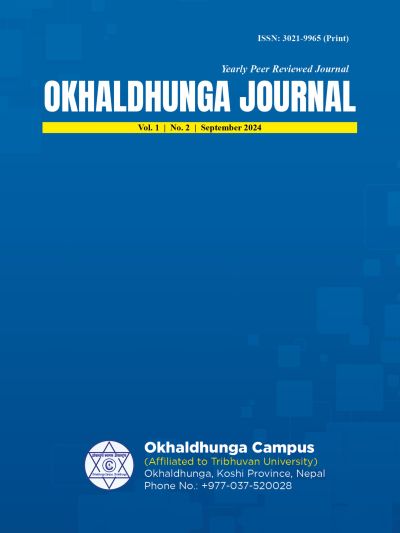Contribution of the English Language to Advancing Travel and Tourism
DOI:
https://doi.org/10.3126/oj.v1i2.69555Keywords:
expansion, lingua franca, tourism, travelAbstract
This article explores the intricate relationship between language and tourism, focusing on the role of English as a global lingua franca in facilitating communication and cultural exchange. While English is often viewed as a colonial language used for resource exploitation, its knowledge is a resource that attracts and facilitates tourists, enriching tourism. The research questions address how English has become integral to tourism and its impacts on tourist experiences and destination choices. The study employs a historical and sociolinguistic analysis, examining the historical, political and economic factors contributing to the globalization of English. The paper emphasizes the importance of effective communication in tourism, illustrating how language proficiency in English enhances tourist experiences and influences destination selection. Additionally, it highlights the significance of linguistic diversity in enriching the tourism experience and promoting inclusivity. Findings indicate that English proficiency significantly enhances tourist experiences while linguistic diversity adds value to tourism. The paper advocates for sustainable tourism practices that embrace cultural and linguistic diversity. Overall, it calls for a deeper understanding of the interplay between language and tourism to foster cultural appreciation and sustainable tourism practices globally.




